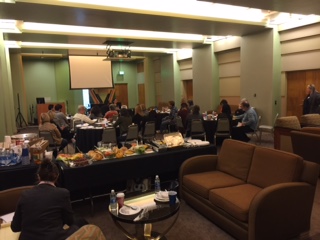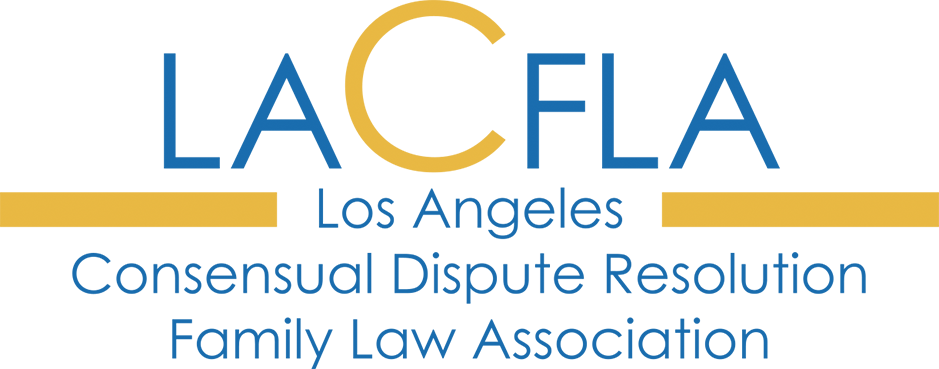2016 Diversity Workshop
On December 3, 2016, LACFLA presented it’s Seventh Annual Diversity Workshop, at Southwestern University School of Law. Program chair Jena Stara and her committee, Jami Fosgate, Esq., and Devorah Markman, Esq., put together a fascinating four hour program on the topic of ” Neuroatypical People and Our Collaborative Practice”.
The speakers for this program came from a cross section of the legal, psychological, and educational backgrounds as well an actual clients perspective. Carol Hirshfield, PhD, addressed the question “What does Neurodiversity mean. The study of people presented with challenges such as Autism, ADD, ADHD, and other learning disabilities and how to adapt our approach to the Collaborative Dispute Resolution Process was explored. Daniel Au Valencia, Chapter Leader for the Autistic Self Advocacy Network, explained how the Neurodiversity Paradigm Shapes our Goals. Helping parents of children with these challenges to develop successful approaches to education and even the daily challenges of life for the Neurodiverse members of our community. Obtaining services (the goal) requires recognition that the direction isn’t fixing the problem, but instead recognizing the diagnosis for what it is and working to enhance the life of the afflicted in their world. Making the Paradigm shift on how to think about dealing with people who’s challenges require special consideration was a primary focus of Daniel’s presentation.
 Educational and Disability Rights Attorney, Heather S. Zakson presented a Child Centered approach to dealing with special educational needs of the Neurodiverse student. Understanding both the Legal Issues and the Psychological issues that encompass representing the Neurodiverse child and obtaining services that meet the childs needs, were explored in some detail. Helping Parents to advocate for their children with disabilities and the use of professionals to assist in the process was discussed. She discussed the IEP (individual educational plan) process and how to present the needs of the child within a system that has very different goals. Minimizing conflict between divorcing parents is essential to protecting the childs welfare. How the Collaborative Process can assist these parents in getting the appropriate services for their child were discussed. Eliminating conflict between the parents in these processes is essential to protecting the child and obtaining the appropriate level of services. Bringing the parents dispute into the IEP can only be detrimental to obtaining the services their child so badly needs.
Educational and Disability Rights Attorney, Heather S. Zakson presented a Child Centered approach to dealing with special educational needs of the Neurodiverse student. Understanding both the Legal Issues and the Psychological issues that encompass representing the Neurodiverse child and obtaining services that meet the childs needs, were explored in some detail. Helping Parents to advocate for their children with disabilities and the use of professionals to assist in the process was discussed. She discussed the IEP (individual educational plan) process and how to present the needs of the child within a system that has very different goals. Minimizing conflict between divorcing parents is essential to protecting the childs welfare. How the Collaborative Process can assist these parents in getting the appropriate services for their child were discussed. Eliminating conflict between the parents in these processes is essential to protecting the child and obtaining the appropriate level of services. Bringing the parents dispute into the IEP can only be detrimental to obtaining the services their child so badly needs.
Ed Greenberg, Executive Director of Laughter for Change and professional stand up comedian, provided an overview and exercises regarding laughter as an agent of change and connection. Ed’s presentation focused on how improvisational theater and comedy can assist in finding common ground for communication and collaboration in the Neurodiverse world. Expressing and enjoying themselves, trusting each other and without judging each other, the group is able to connect and provide a much needed sense of accomplishment.
Karen Ingram, Director of Community Services for the Frank D. Lanterman Regional Center presented on the nature and extent of services that are available for the Neurodiverse population.
Many of the attendees of this workshop commented about the need for the collaborative dispute resolution community to become more familiar with these types of issues in their own practices. Educating the parents of Neurodiverse children can be a significant challenge. With the guidance of Collaborative Professionals that understand the needs and approaches to dealing with a family with Neurodiversity issues, many of the conflicts between parents can be resolved through education and understanding as opposed to positioned opposition and court intervention.
